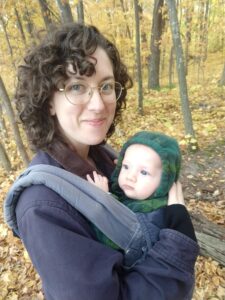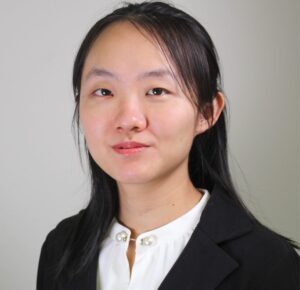by Emily Bouza, Graduate Coordinator of Writing Across the Curriculum
Have you ever wondered who works at the UW-Madison Writing Center? As a graduate student who has worked at the Center for several semesters, I know sometimes we are seen as mysterious writing gurus, but the Writing Center is full of individual graduate students who each have their own distinctive skills. As I’d like to share in this piece, each of these TAs also has acquired unique insights to share with other instructors who teach with writing.
This past the semester, the Writing Center hired many staff members who have brought a wide range of perspectives and experiences to our team. We have TAs from across disciplines, such as Applied Linguistics, Art History, African Cultural Studies, Composition and Rhetoric, Curriculum & Instruction, English as a Second Language, Folklore Studies, Human Development and Family Studies, International Theater Studies, Literacy Studies, Second Language Acquisition, Social Work, Sociology, and Spanish and Portuguese.
All Writing Center TAs are current graduate students, typically in at least their second year of their programs. TAs are hired based on their experience and interest in teaching writing to students at all levels and across all disciplines. The Writing Center also looks to hire staff who bring a variety of perspectives, backgrounds, and academic experience. All new hires are required to take a one-credit-hour professional development seminar in their first semester to introduce them to concepts of tutoring writing across the curriculum. These TAs also gain immediate experience working with both undergraduate and graduate students across fields, in both face-to-face and virtual formats.
With this influx of cross-disciplinary graduate writing instructors, I thought I would invite them to share how working at the Writing Center benefits graduate students in their writing, teaching, and other disciplinary work.
I interviewed five of our new Writing Center TAs: Zoe Cohen (International Theater Studies), Caro Cruys (Social Work), Sarah Gamalinda (African Cultural Studies), Chen Sun (Second Language Acquisition), and Luke Urbain (Spanish and Portuguese). These TAs have previous experiences teaching writing, but this is their first time working in a Writing Center. These TAs share that working with students from across campus has greatly affected the way they think about writing and teaching in their respective disciplines.





Writing Center TAs see new writing assignments every time they work with a new writer. Chen shared that it is interesting to work with the great diversity of students at the Center, in both identity and the genres they bring in. Urbain shared that the “exposure to breadth of assignments has been really helpful.” After working for multiple weeks with a student who was writing 50 word reading summaries, Urbain decided to try out this writing exercise with students in their own teaching in a Spanish discussion session. Urbain shared that “it was a really helpful exercise” to include these summary activities to help think through the tricultural aspects of Spain. While few writing instructors have the chance to tutor the great variety of writing assignments that come to a Writing Center, I encourage all instructors to pay attention to the different ways that colleagues incorporate both shorter and longer writing assignments into their teaching. You can do this through discussions with fellow instructors or by checking out examples in our WAC sourcebook.
Diving into forty-minute conferences with students on a regular basis has also given these TAs new perspectives on how students learn to write. Gamalinda shared that working on the individual level with students as a writing tutor has been really influential to her teaching: “As a classroom instructor, I bring back a more nuanced understanding of how different writers go through the process of writing because I am working with them one-on-one. In my classroom teaching, I want to incorporate more opportunities for individual conversation about writing and more explicit attention to it, so that writing doesn’t only happen independently and outside of the classroom time.” Similarly, Chen shared that working as a writing tutor has helped her learn how to “provide feedback and address emerging issues” and she has benefitted from the “concept of active listening and asking effective questions” that is central to Writing Center work. Central to both of their experiences is the idea that listening to students and having conversations about their writing is now going to be emphasized even more in their classrooms.
Finally, throughout many of these responses, TAs mentioned how they now think more about how to foster and value individual voices of students in their academic writing. They are thinking about language and writing differently after working at the Writing Center. Cohen mentioned that she is thinking through course development differently, thinking about issues like “how do the choices we make when we put together a syllabus affirm or resist certain language ideologies?” In other words, she is thinking about how her teaching resists or reaffirms privileged dialects over other forms of language expression. Cruys is also thinking through language differently and says they now think about “really encouraging everyone to have their own authorial voice” and “how to encourage what shows up” in the writing of their students. Seeing so many different students at the Writing Center has influenced these TAs to consider the variety of voices and perspectives that students bring to the classroom and how to encourage that in their teaching rather than simply work towards conformity of academic language.
In just one semester working with the Writing Center, these TAs have gained a lot through the individual conversations that they have with students about their writing. They have even shared how much the Writing Center has made them feel less alone in their own struggles as writers and as graduate students. Whenever I work with new staff members at a Writing Center, I hear many share that the experience drastically changes how they will teach writing in the future. The influence of tutoring writing on individuals’ professional and academic growth has been noted in Writing Center scholarship, as well. In an article titled “The Peer Tutor Alumni Research Project,” Hughes, Gillespie, and Kail (2010) report their study of alumni from their respective Writing Centers, and they find that through tutoring, undergraduate peer tutors tend to develop skills in writing, analysis, listening, collaboration, and confidence that benefit their future careers as well as personal relationships.
After working at the Writing Center for several years, I find that in my teaching, I bring in the same focus on working with students at each stage of the writing process into the classroom. I emulate my tutoring experiences by creating opportunities to hear about students’ writing while they are in the development stage of their writing process so that I can encourage them to develop their own voice and ideas. My students then tend to invest more of themselves into their writing projects and I get to enjoy reading a variety of approaches to the same assignment and give them feedback to develop their writing skills to best meet their personal writing goals. The time I have spent working in the Writing Center has given me an appreciation for the variety of experiences that students bring to the university and the skills to help students share their perspectives and voices through their writing.